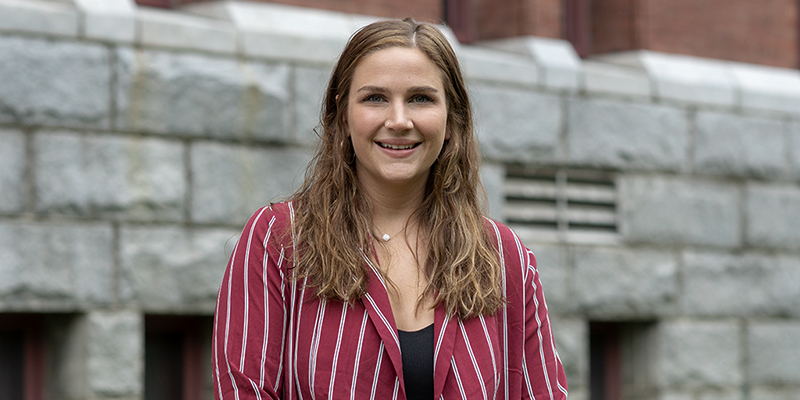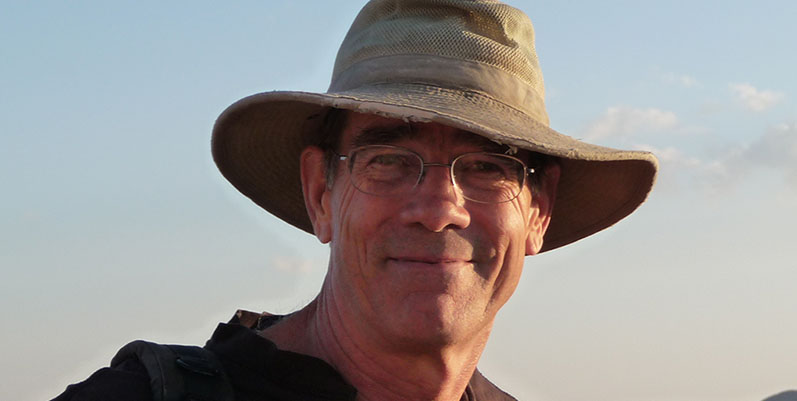By Erica Houskeeper
The 18th annual UVM Summer Autism Institute, June 24-26, will address aspects of inclusion and transition, research, and effective treatment of ASD. The event will take place at the DoubleTree by Hilton in South Burlington.
John Miller was born in Montreal, Quebec in 1968. As a child, he worked to overcome academic and social challenges. He pursued a master’s degree in special education to help other young people succeed; and during this time he was diagnosed with autism. For more than a decade, he has taught students with autism in a variety of settings and created pragmatic and organizational programs as a consultant for individuals with autism. His book, Decoding Dating: A Guide for those with Autism, focuses on dating and relationships for males with high-functioning autism.
Miller, a keynote speaker at the UVM Summer Autism Institute, will present “From Inclusion to Transition: The Road to Independence” at the conference.
You recently published, Decoding Dating: A Guide for those with Autism. Was there a particular moment or experience in your life that made you decide to write the book?
The desire to have a relationship was always there, but I did not know how to go about it. This created unforeseen situations, and I really did not know what to say or do. Anxieties kept me from dating for many years because I only thought about what could go wrong. This created a self-fulfilling prophecy and I allowed my own fear to keep me from growing and experiencing life. I want young people with high-functioning autism to have the tools and self-esteem to attempt dating.
The book discusses how to know if you are ready for a relationship, what qualities to look for in a partner, and other dating topics. What kind of research did you do to write the book?
I looked at what I did right and wrong. Before writing, I created a list of topics that would be most relevant to individuals with autism. I kept in mind what challenges and difficulties people with ASD would face in the dating world, which is hyper-social. The books takes a very practical, methodical, and blunt approach toward dating and relationships.
When it comes to dating with autism or ASD, what are some of the biggest challenges – trust, boundaries, dialogue?
Dialogue is a major problem due to the issues in receptive language, pragmatics, and reading body language. These are things we can’t take for granted, and they need to be learned by doing and being exposed to practical examples and skills. Knowing when to start, change, and end a conversation are very important skills to know – those skills involve observing, listening, and reading cues. Certain subjects are appropriate, while others aren’t. People with autism need to know what to talk about with different people. Depending who they talk to, a topic may be acceptable or not. These skills will help make or break a relationship.
Your book mostly provides advice to men. Are there differences between how men with ASD and women with ASD should approach dating?
Women do share some of the same issues, However, ASD in women manifests differently in a variety of ways and in a subtler manner. Women can hide many things men can’t, and women tend to be more socially agile. Still, females are more likely to face dangers of being taken advantage of and having their trust betrayed in ways that are less likely to happen to males. Originally, I wanted a woman with ASD to write part of the book from her perspective, but wasn’t able to do so. I feel that a woman needs to speak about these issues more directly.
You have been married to your wife Terri for eight years, and have a child. What advice would you give to parents who have ASD?
Quite simply, by forcing yourself beyond your comfort zone and thinking about other people. With children it is not about you, but them. With a spouse, communication and putting yourself in their shoes is of paramount importance.
How do you believe the perception of autism has changed over time?
It is much more empowering to me now. It is a realization that living with autism is not solely about the challenges. Through teaching and speaking I have found my voice, and my mission is to empower and help individuals with autism succeed in life. For individuals who are teachers or specialists, I want to inform, provide strategies, and help them look at autism in novel ways, As for parents, I want them to see that growth, change, and hope are possible. Beyond that, I want to change the dynamics of the dialog on autism in wider society.
Could you describe some challenges inclusion poses for students with autism?
Acceptance from the other students and teachers they will encounter is one. Also, being taught the strategies and being given the tools needed to succeed in a mainstream environment. Executive functioning and organization need to be taught earlier. Ultimately, for it to be successful, there needs to be support through action and deed of inclusion. Tolerance has to be more than a cliché.
You have talked about how the concept of normality is subjective, and that there is a “myth of normality.” What does that mean?
Basically, it’s a reexamination of what normality is on many levels. This is a term that is used to separate and even malign others. Upon closer examination, normality is subjective at best and really does not exist, save a few concrete examples. When people use the label of normality in reference to people with autism, they see them as abnormal. The reality is that many behaviors that are seen as indicative as autistic they are viewed as negative. However, when a person that does not have autism exhibits them, they are perceived in a much more benign manner. My goal is to change the reality of how we view others and to humanize how others look at people with autism.
Could you describe the rewards and challenges you find helping others with ASD?
To me, there really aren’t challenges, but the rewards are many. It’s so gratifying seeing someone do things that they would never have seen themselves doing before. I love it when I see someone navigating social situations, wanting to be social, and having real friends. It’s an incredible feeling.
You were diagnosed with autism while in graduate school. What was it like being diagnosed as an adult? Did it fuel your passion to help others?
Looking back, the signs were always there but people gave me different labels. When I was very young, I was told I was intellectually disabled, and when I was six I was seen as severely learning disabled. As a teenager, I was told I was gifted specific learning disabled. There was always a common thread in social situations and interactions were very difficult for me, almost paralyzing. I often managed to say the wrong thing at the wrong time and misread people. A diagnosis put the pieces together and provided me with a reason why I was that way.
In a sense, the diagnosis gave me peace. Helping others naturally came from this, due to my need to help people avoid what I did, and bring them to the point that they would succeed. It’s really about me not wanting to be the exception — but rather the rule — of success and independence.
Photo: Flickr Creative Commons




